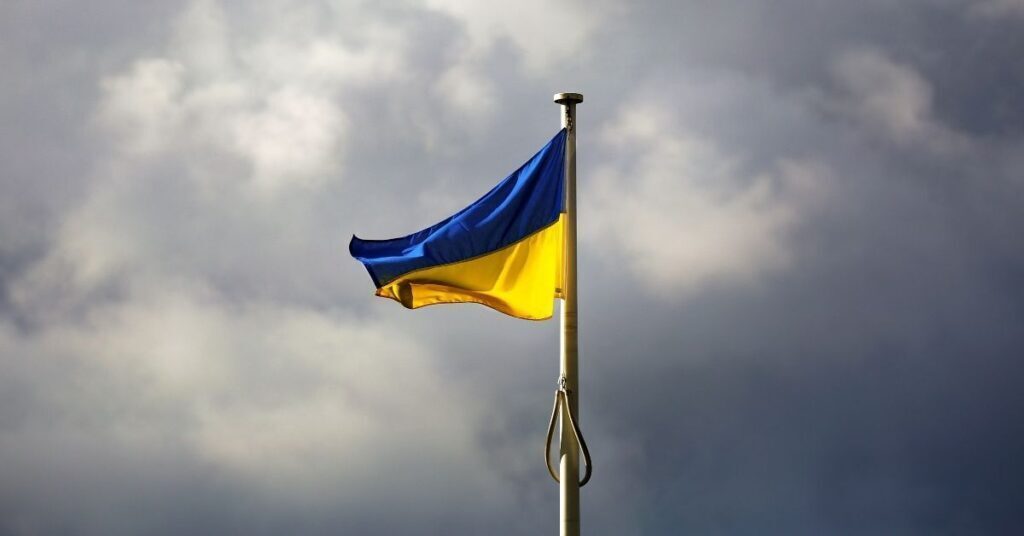The girl was clearly foreign. When she spoke, her accent gave her away. She was from the country that had just invaded a much smaller nation. She represented the country that just started a war.
When she walked down the street, some people ignored her, while others gave her dirty sideways glances. But some bold individuals stood up and challenged her to denounce the actions of her home country, or to explain—in their language—how she could possibly support her government’s actions.
Perhaps you have watched a scene like this play out in recent weeks, as Russia’s invasion of Ukraine has gained international attention. Russians living around the world have been confronted with a mixture of horror, disgust, or distrust.
But the girl in that story was not Russian, and those events did not happen this year. The girl was me—an American living in Paris, France—and the year was 2003, when the U.S. forces had just invaded Iraq, against the advice of the United Nations.
Many readers may have forgotten the international environment during the opening months of the Iraq war, (or perhaps you were too young to be involved in politics yet), but in 2003, there were anti-American protests in many countries around the world. France, in particular, vocally denounced the American “invasion” of Iraq.
In retaliation, America launched an odd counter-culture response to all things French. Americans proclaimed that they would boycott French fashion, perfume, and food. In American restaurants, French fries were rebranded as “freedom fries.”
It was an awkward time for me to spend a semester of college abroad, studying in Paris. Especially since my boyfriend was a new Marine on his first combat deployment…to Iraq.
Before I traveled to France, while I was still in college in the States, I was confronted by several students who were anti-war. They assumed that because I was dating a Marine, I must also support the military actions in Iraq.
As I described in my book, Open When: Letters of Encouragement for Military Spouses,
“I felt simultaneously proud of him and terrified for his safety. I cried when some people, who viewed me as a representative of the military or the government’s military decisions, singled me out to share their political opinions and grievances.”
It was a difficult and confusing time to be a military girlfriend. In the early months of preparing for war and his first deployment, I learned to stand up for myself and my relationship, to separate my relationship from politics, and to sort through my ethical views without bringing too many emotions into the discussion.
But then I spent my spring semester studying in France, while he deployed to Kuwait. I was in Paris on the day when American forces—including my Marine and his unit—first crossed the border into Iraq. The French held demonstrations in protest.
My student exchange program reminded us to stay away from the American Embassy and to act British when travelling, so we wouldn’t be singled out or attacked as Americans. Meanwhile, well-meaning friends back home included me on their email threads about boycotting French products and supporting our troops by referring to everyone’s favorite side dish as “freedom fries.” It was definitely a confusing time to be an American in Paris.
Soon, every French person I met wanted to discuss “America’s war” with me. I learned how to translate all my complex thoughts on philosophy and international politics into French so that I could explain my own views, defend my relationship, and occasionally defend my country. People seemed shocked to learn that being American didn’t mean automatically supporting every decision of President Bush, and that having a military boyfriend didn’t automatically make me pro-war.
I share this story with you now, because it has all come flooding back to me in recent weeks as we watch the war in Ukraine unfold. Yes, what is happening in Ukraine is horrible. Many of Russia’s actions are inhumane. It’s easy to get caught up in the “I stand with Ukraine” fervor and want to denounce any Russian person or product.
But let’s remember during this time that there are many nuances in war. Things are rarely black and white or purely good vs. evil. And it would be foolish to think that every Russian soldier or Russian citizen shares the exact same views as Putin.
When America invaded Iraq, I was a military girlfriend living aboard, who felt scared and confused about the international events affecting me, my service member, and our entire country. At the time, I wished that people would be kind and acknowledge that individual citizens have individual opinions and don’t necessarily support every action of their government. Let’s extend that grace now—to Russians, to Ukrainians, and to everyone we meet.


